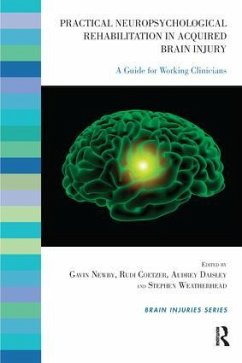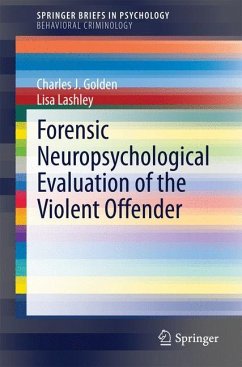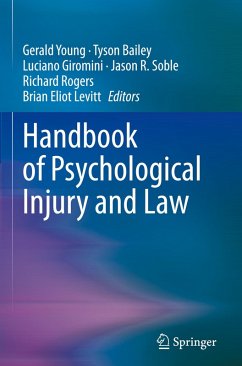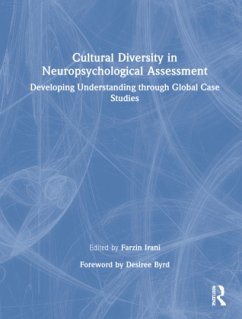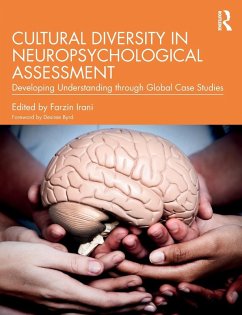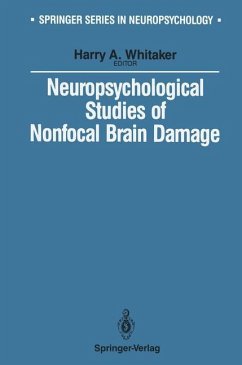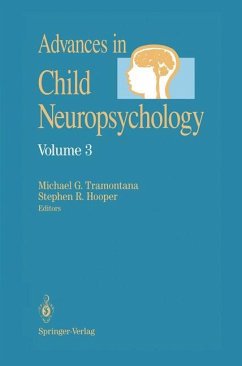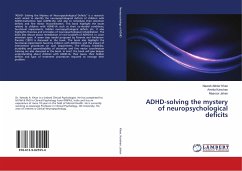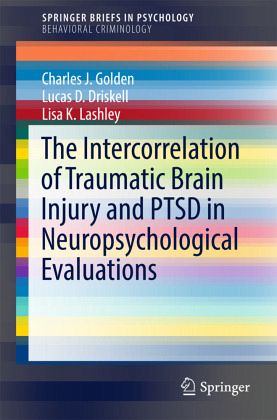
The Intercorrelation of Traumatic Brain Injury and PTSD in Neuropsychological Evaluations

PAYBACK Punkte
19 °P sammeln!
This concise reference clarifies the gray areas between traumatic brain injury and PTSD while providing an empirically sound framework for neuropsychological evaluation and differential diagnosis. Its extended research review summarizes findings on key topics including the neuroanatomy of brain injury, test battery design and selection, and the salience of accurate diagnosis to ensuring appropriate specialized treatment. The authors offer the possibility of combined diagnosis as well as injuries that may fall through the diagnostic cracks, and consider possible relationships between TBI, PTSD,...
This concise reference clarifies the gray areas between traumatic brain injury and PTSD while providing an empirically sound framework for neuropsychological evaluation and differential diagnosis. Its extended research review summarizes findings on key topics including the neuroanatomy of brain injury, test battery design and selection, and the salience of accurate diagnosis to ensuring appropriate specialized treatment. The authors offer the possibility of combined diagnosis as well as injuries that may fall through the diagnostic cracks, and consider possible relationships between TBI, PTSD, and the dementias, including Alzheimer's disease. This knowledge base and the practical guidelines it informs are presented so that readers can better:
· Understand the clinical distinctions between TBI and PTSD, and among forms of TBI.
· Recognize cognitive, behavioral, emotional, and social components of the disorders.
· Identify skill areas for neuropsychological evaluation of patients.
· Select appropriate instruments for individualized assessment.
· Address test administration and interpretation concerns.
· Make an accurate differential diagnosis between PTSD and TBI.
With its sharp focus on the nuances of trauma and recovery, The Intercorrelation of Traumatic Brain Injury and PTSD in Neuropsychological Evaluations will find a wide, interested audience among psychologists, neuropsychologists, neurologists, psychiatrists, social workers, mental health counselors, undergraduate and graduate level students, and researchers. In addition, this text may be useful for those interested in psychology and neurology.
<
· Understand the clinical distinctions between TBI and PTSD, and among forms of TBI.
· Recognize cognitive, behavioral, emotional, and social components of the disorders.
· Identify skill areas for neuropsychological evaluation of patients.
· Select appropriate instruments for individualized assessment.
· Address test administration and interpretation concerns.
· Make an accurate differential diagnosis between PTSD and TBI.
With its sharp focus on the nuances of trauma and recovery, The Intercorrelation of Traumatic Brain Injury and PTSD in Neuropsychological Evaluations will find a wide, interested audience among psychologists, neuropsychologists, neurologists, psychiatrists, social workers, mental health counselors, undergraduate and graduate level students, and researchers. In addition, this text may be useful for those interested in psychology and neurology.
<



